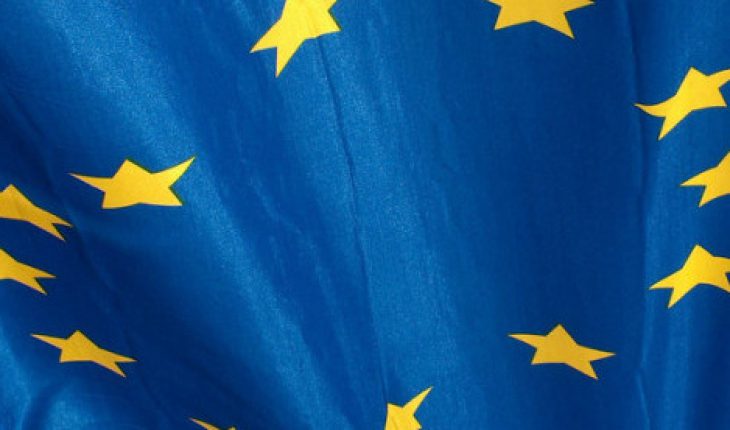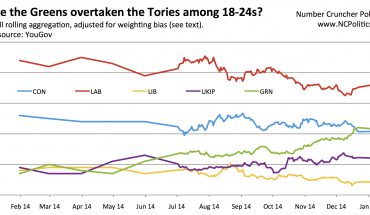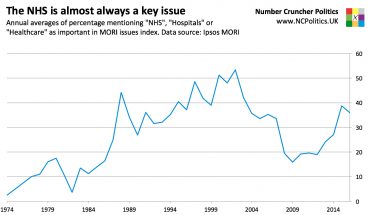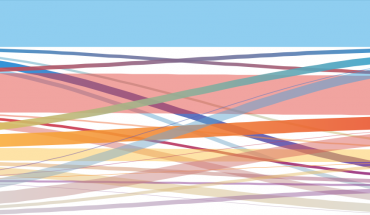It seems a long time ago now, but a year ago we just expected a poll a day, with Mondays seeing 4 or 5 ahead of last year's general election. But for reasons that everyone will be familiar with, polling is less frequent at the moment, and in fact since the ballot paper question was set in September, it has been polled just 100 times (thanks to John Curtice for pointing that milestone out).
ComRes had a phone poll out for the Sun on Sunday night which showed both sides dropping three points with the Remain lead unchanged at 7 points.
ComRes/Sun (#EUref, changes vs last ComRes phone poll):
REMAIN 45 (-3)
LEAVE 38 (-3)Fieldwork "last week"
N=1,002https://t.co/xiefgGRcwj— NCP EU Referendum (@NCPoliticsEU) April 17, 2016
ICM conducted a parallel test for the Guardian, with a phone poll also showing a 7 point Remain lead and an online poll showing a 1 point Leave lead, down from 3 points last week. We’ll see if Martin Boon writes anything on the test, though it’s notable that the phone-online gap has roughly halved since NCP’s experiment, jointly with Populus, a few weeks ago.
ICM (#EURef, ONLINE):
REMAIN 43 (+1)
LEAVE 44 (-1)15th-17th
Writeup @guardian_clark/@AndrewSparrow https://t.co/8SF1EeIx05
— NCP EU Referendum (@NCPoliticsEU) April 18, 2016
ICM (#EURef, ONLINE):
REMAIN 43 (+1)
LEAVE 44 (-1)15th-17th
Writeup @guardian_clark/@AndrewSparrow https://t.co/8SF1EeIx05
— NCP EU Referendum (@NCPoliticsEU) April 18, 2016
Finally we got another ORB telephone poll for the Telegraph. ORB’s new methodology only covers those “certain” to vote – the changes (which are on a like-for-like basis) mostly reflect a genuine swing, but also an increase in self-reported likelihood to vote from Remainers. While I have still have some reservations about the volatility of these polls, Lynton Crosby’s writeup is well worth a read.
ORB/Telegraph (#EUref):
REMAIN 52 (+3)
LEAVE 43 (-5)N=800
Writeup https://t.co/zfxkDXvbdx#EUreferendum #Brexit— NCP EU Referendum (@NCPoliticsEU) April 18, 2016
It does seem as though the move towards Leave over the last month or so has run out of steam, at least for the moment… In the last two weeks there have been 11 EU referendum polls, 8 of which were online, but only 2 of them have shown Leave ahead. So at the very least, the trend has taken a pause. The forecast page will be updated later tonight with the new data – the previous figures had Remain 3 points ahead with a 77% chance of winning.
Monday’s news was dominated by the Treasury’s economic projections, which the Remainers cheered, the Leavers booed and the factcheckers got their teeth into. The economy is of course a significant issue in the campaign, so this debate matters. Even a small expected change in peoples own financial circumstances can have a meaningful impact, as Philip Cowley’s work has shown:
And this is what happens when you tell people that following Brexit they'll be £25 better or worse off… pic.twitter.com/L8jLkUqJyI
— Philip Cowley (@philipjcowley) April 18, 2016
But betting markets weren’t impressed, with some big money going on Brexit on Betfair – pushing up the implied probability to 36%, with a total over £4.4 million matched as of 10:45pm.
Campaigns generally matter more in referendums than in elections – my view on election campaigns is that they are like a tug of war – if only one side put the effort in, they would win, but when both do, they largely cancel each other out. But in referendums, people don’t have the default position of a party they usually vote for – they have a new decision to make, which a campaign can inform. Sara Hobolt and Sara Hageman at the LSE have a new piece out referendum campaigns.
Watch this space for further updates.





